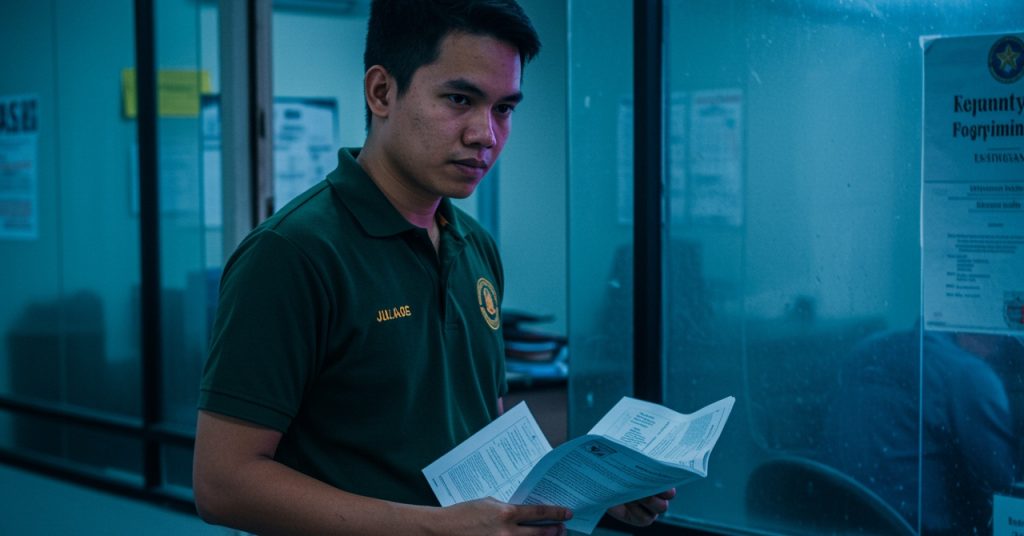When I first thought about working in Taiwan, I assumed the only way in was through an agency. That’s what I kept hearing from neighbors and community groups. But after doing my own research, I found out that direct hire was not only possible – it could actually be a smarter move depending on your goals and background.
If you’re trying to decide between direct hire vs agency work in Taiwan, here’s everything I wish I knew when I was starting out. This guide breaks down the key differences, costs, benefits, and risks to help you choose the better path for your situation.

What’s the Difference Between Direct Hire and Agency?
Understanding the path you take—direct hire or agency—can make or break your overseas experience. Below is a detailed breakdown to help you weigh the options based on cost, process, risk, and industry fit.
| Criteria | Direct Hire | Agency Hire |
| Who finds the job? | You apply directly to the employer through job portals like 104.com.tw, LinkedIn, or referrals. There’s no middleman—so you’re in full control of where and how you apply. | You go through a licensed recruitment agency in the Philippines that matches you with Taiwan-based employers. Most agencies specialize in bulk hiring for factory work or domestic jobs. |
| Processing time | It can take 2 to 3 months or longer, depending on how fast you and your employer handle contract verification, medical tests, and visa processing. You’re managing the paperwork yourself, which can cause delays if you’re unfamiliar with the process. | Agency processing is generally faster—between 1 to 2 months—because they guide you through each step. Agencies are familiar with the system and can coordinate directly with Taiwan’s labor offices and your employer. |
| Upfront cost | Costs are lower but paid out of pocket. These may include:
· medical exams (₱3,000–₱5,000), · visa and ARC application (TWD 3,000–5,000 or ₱5,500–₱9,000), · NBI clearance, · and airfare (₱12,000–₱20,000 depending on season). Some employers offer reimbursement, but you must cover expenses initially. |
Costs can reach ₱60,000–₱80,000 in total. This includes: · placement fees (capped at one month’s salary), · medical tests, · DMW documentation, · pre-departure orientation seminars, and training. While the agency organizes everything, you still need to prepare financially before deployment. |
| Support during work | You’re mostly on your own. If an issue arises, you’ll need to go directly to the Migrant Workers Office (MWO) in Taiwan.
Direct hires often don’t receive agency support, so legal help and dispute resolution may take more time. |
Agency hires typically get ongoing support. Agencies usually have local coordinators in Taiwan to help you settle in or mediate issues.
If problems arise, the agency helps liaise with your employer and the MWO. This is one of the main reasons first-time OFWs choose the agency route. |
| Risk level | Risk is higher, especially if you don’t vet your employer properly.
Direct hire scams do happen, and without proper contract verification, you might face illegal deployment, underpayment, or even job loss. |
Lower risk. Licensed agencies must follow strict DMW regulations, and your contract is verified before departure.
You also attend mandatory orientations that prepare you for the job and local culture. |
| Common industries | Skilled labor, caregiving, engineering, hospitality, education, and IT.
These roles often prefer direct hire due to specific qualifications or language skills. |
Manufacturing, production, and household service work are mostly handled through agencies.
These roles have standardized contracts and recruitment cycles, making agency coordination more efficient. |
In short, direct hire gives you independence and potential savings—but only if you’re confident in handling the paperwork and verifying the employer. On the other hand, agency hire is structured, safer for first timers, and provides peace of mind, though at a financial cost.
The Direct Hire Route: Is It Worth It?
Pros:
- No placement fees, more take-home pay
- More flexibility in choosing your employer
- Ideal for professionals and skilled workers
Cons:
- You handle everything yourself, from job search to documentation
- Higher risk of scams or non-compliance
- Limited support once deployed
If you decide to go this route, make sure your employer is legitimate and DMW-accredited. Have your contract verified before leaving the Philippines and consult with the MWO in Taiwan when needed.
The Agency Route: Still the Standard for Many
Pros:
- Step-by-step assistance from application to deployment
- Legal safeguards and clear process
- Agencies offer help with accommodations, orientation, and emergencies
Cons:
- Upfront costs can be heavy
- Less control over job offers
- Some agencies may place you in jobs that don’t align with your skills or preferences
This path works best for first-time OFWs or those who want a smoother, more guided transition abroad. It may cost more, but you’re also more protected.
Which One Is Right for You?
Ask yourself these questions:
- Are you a first-timer with no connections or idea how Taiwan’s system works? → Go with an agency.
- Have you worked in Taiwan before, or are you getting re-hired by the same employer? → Direct hire could save you money.
- Are you in a skilled profession with a direct offer from a company? → Direct hire is a strong option.
- Do you want someone to manage your documents, training, and deployment? → Agency route gives you peace of mind.
Ultimately, both paths can lead to a good life abroad—what matters is making an informed, legal, and secure choice.

Frequently Asked Questions
Can first-time OFWs go direct hire?
Yes, but the DMW requires stricter documentation. Agencies are more beginner-friendly.
Is direct hire cheaper?
In most cases, yes. You save on agency placement fees but must be ready to handle visa, airfare, and pre-departure expenses yourself.
What if I get scammed as a direct hire?
Contact the nearest Migrant Workers Office in Taiwan immediately. Always verify your contract and employer beforehand.
Can I switch from agency to direct hire later?
Yes, especially if your Taiwanese employer offers you a second contract after your first one ends.
Final Thoughts
Choosing between direct hire and agency work in Taiwan isn’t just about the paperwork—it’s about how prepared you are to handle the job process from start to finish. Each path has its pros and challenges. What matters is staying informed, legally compliant, and connected to support systems like the DMW and MWO. Your journey abroad should empower you, not trap you.
